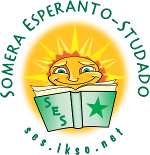Instruction
Esperanto classes will be led by experienced Esperanto teachers with abundant international experience.
Teachers
Level A1
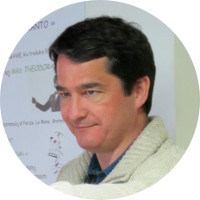 Víctor Solé (Catalonia)
Víctor Solé (Catalonia)
Levels A2–B1
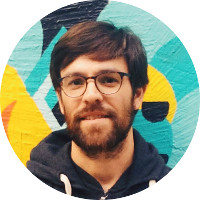 Christophe Chazarein (France)
Christophe Chazarein (France)
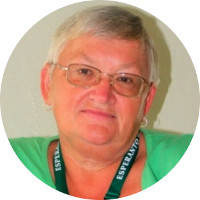 Nina Pietuchowska (Poland)
Nina Pietuchowska (Poland)
Level B2
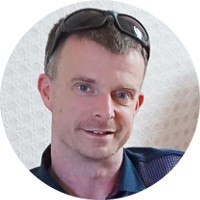 Tim Morley (United Kingdom)
Tim Morley (United Kingdom)
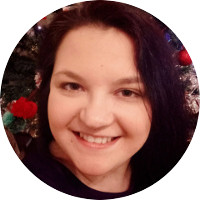 Arina Osipova (Russia)
Arina Osipova (Russia)
Levels C1–C2
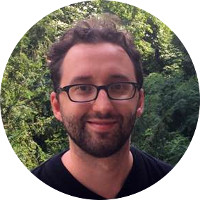 Konstantin Tikhomirov (Russia/Poland)
Konstantin Tikhomirov (Russia/Poland)
Esperanto literature and culture
Through Esperanto one can not only love, argue, meet new people and forget the accusative, but also create literature. Ever since Zamenhof's time, the language has been used in every literary endeavor, from poetry, novels and short stories to song lyrics. Come to our course to learn more about Esperanto literature and we will show you how to write fantastic (or maybe just good) poetry!
Depending on the participants and their wishes, we will cover various topics such as:
- Introduction to the so-called Esperanto culture and Esperanto literature; specifically, to original poetry and prose and to the periods of original Esperanto literature according to Sutton.
- We will focus on several important authors such as William Auld, Baldur Ragnarsson, Roberto Passos Nogueira, Mauro Nervi, Mao Zifu, and others.
- Translation of Belles-letters.
- Relationship between song lyrics and poetry.
- Editing an international cultural-literary magazine (using “Beletra Almanako” as a current example).
- Publishing of Esperanto books.
- Reviews of Belles-letters.
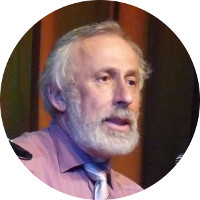 Mikhail Bronstein (Russia)
Mikhail Bronstein (Russia)
Mikhail Bronstein (from Tikhvin) is a world-renowned Esperanto translator, writer, poet and singer-songwriter. He has written and translated over 20 books. In 2003 he received the Antoni Grabowski Prize for Esperanto literature. His unrelenting creative activity mostly takes place within his wider Esperanto activism, which took him from the position of President of the Soviet Esperanto Youth Movement (SEYM) during his youth to leading arts programmes during World Esperanto Congresses. Over the past few years, Mikhail has regularly toured Europe, giving history- and culture-themed conferences and concerts. He has a lot of experience teaching Esperanto, at advanced levels especially, and has brilliantly taught translation classes to multilingual audiences.
Course: History of Esperanto
This course does not just present the most important events from the history of Esperanto, but aims to illustrate the themes that influenced the evolution of the Esperanto community, particularly its origins.
We will discover the answers to questions such as:
- Why did Zamenhof suggest reforms to his language on several occasions, and why were his proposals rejected?
- Why did the leaders of the Esperanto movement of the time advise Zamenhof not to reveal himself as the creator of "homaranismo"?
- Why do the participants of the Universala Kongreso nowadays not make important decisions during the Congress?
- Why did Esperanto become not a second language for all, but the first language of the Esperanto community?
The basis of this course is the 12-hour course "Historio de Esperanto", as presented by A. Korzhenkov at the Interlinguistics Studies programme of the Adam Mickiewicz University, Poznán (Poland). The course is aimed not at experts in this field, but at those with a good command of the language who as yet have little knowledge of the history of the Esperanto movement.
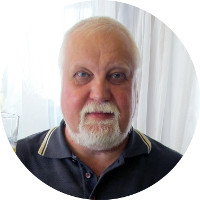 Alexander Korzhenkov (Russia)
Alexander Korzhenkov (Russia)
Aleksander Korzhenkov (b. 1958) is a Russian engineer, and since 1991 also an editor and publisher. He learned Esperanto in 1976. He has been the editor of "La Ondo de Esperanto" since 1991. Along with his wife Halina Goretska he has published over 100 books in and about Esperanto. He is the author of several teaching books and essays. He has written over 1000 articles and reviews for several publications. His main works on the history of Esperanto include "Esperanto post la jaro 2000" (en 1998), "Esperanto en Ruslando" (2000, with Halina Goretska), "Historio de Esperanto" (2005), "Homarano" (2009), "Zamenhof" (2010), "Nia diligenta kolegaro" (2018, kun Halina Goretska).
CEFR Exams
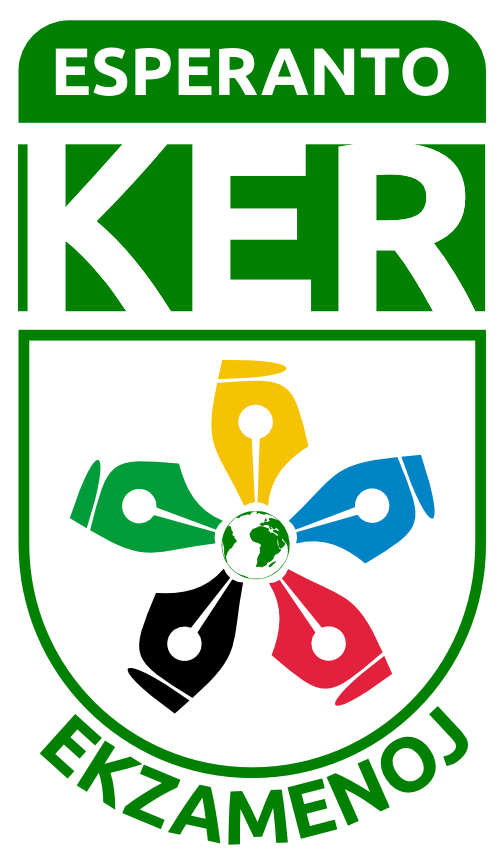
This year it will once again be possible take CEFR exams during SES (if enough people register). UEA and ITK will again be offering the new format of CEFR exams. On the condition that enough participants register before 29/06/2018, exams will take place at all three levels currently available: B1, B2, and C1. It will be possible to sit for the complete exam (that is, the written and oral components), but you may also sit for just one of the two components. (A minimum of 10 people must register for each group/level, in order for the exam to be offered.)
When you successfully pass the exam, the state-recognized Hungarian examination centre ITK will present the candidate with a diploma written in four languages.
Remark: the cost of the exam will NOT be included in the registration fee for SES – you must pay for your exam separately, on site. Information about exam fees can be found here.
To register for the exam, please fill out the registration form.


